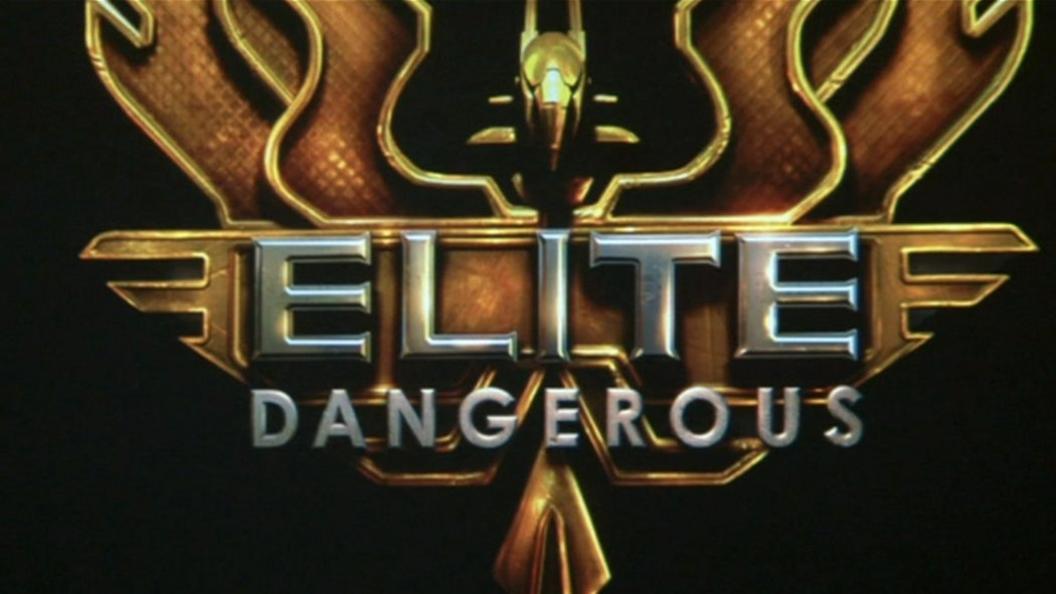Elite: Dangerous faces competition after 16 December launch
- Published
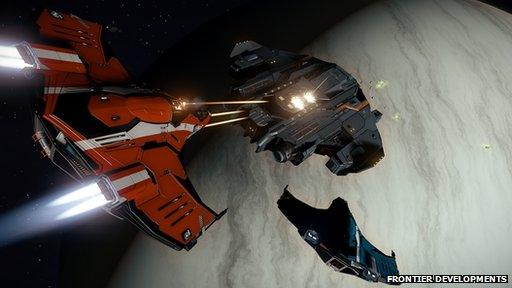
Elite uses the Milky Way as its backdrop and lets players survive and fight in a variety of ships
Space trading game Elite: Dangerous is to be launched on 16 December.
The latest sequel to the influential game will go on general release after months of testing by those who backed it on Kickstarter.
After launch, the game will face stiff competition from other space-based games currently in development.
Many of those offer players very similar experiences to the fighting, trading and exploring in deep space seen in Elite.
Plans to make the fourth instalment in the Elite series of games emerged in November 2012 when the project appeared on Kickstarter, external seeking to raise £1.25m to develop the game.
Elite: Dangerous is being made by Cambridgeshire-based Frontier Developments, the game studio headed by David Braben who co-developed the original Elite game. He said he used Kickstarter because it would have been hard to get a publisher to back the idea.
The December release date is later than originally planned and the game will initially only be playable on PCs. A Mac version is due to follow three months after the original release. Frontier is planning an event on 22 November at which some players will get a look at what the finished game will look like.
Elite: Dangerous is the most successful British Kickstarter funded project ever
On porting the game to consoles, Mr Braben told the BBC's Waseem Mirza: "It is important we make a great game first, but then we will look at other platforms."
After the end of its Kickstarter campaign, Frontier continued to raise funds via its website and from gamers who have paid to take part in the testing phases of the game.
This week Frontier announced that this fund-raising activity had helped it raise £7.5m and more than 140,000 people had taken part in its alpha and beta testing programme.
"Elite has a fabulous heritage," said James Binns, managing director at gaming news site PCGamesN. "The loyalty that people have to it comes from playing it in the 80s."
However, he said, it faced strong competition from another title, Star Citizen, that was also calling on a strong community to back it.
Currently, Star Citizen has raised more than $60m (£38m) from its backers and had a "super engaged" community who were fans of its creator Chris Roberts' earlier Wing Commander games.
Star Citizen was trying to be a bit different, said Mr Binns, as it was planning to let spaceship pilots get out of their craft and fight gun battles in space stations, on planets and inside ships themselves. Star Citizen is scheduled to be released in 2016 though some parts of it are available to backers already.
Also a rival, said Mr Binns, a game called No Man's Sky made by Guildford-based Hello Games.

Star Citizen has raised a huge amount of cash to fund development
"If you are looking for a game that was inspired by the original Elite then No Man's Sky is that game," said Mr Binns. It too will let players use a spaceship to explore a Universe that has been created using a technique called "procedural generation".
Trailers for the game generated huge interest at the E3 convention and it is expected to be released in 2015. At first it will only be available on Sony's PlayStation 4 but a version for PCs is expected to follow.
Each of the games was appealing to a slightly different audience, said Mr Binns, but there was no doubt that these pools of players did overlap.
However, he said, Elite, Star Citizen and No Man's Sky could all face competition from a very well-established title.
"Right now," he said, "the most exciting space game that has shipped is Eve Online."
Mr Braben welcomed the presence of rivals, saying: "Competition is always a good thing for the players, as it gives choice, but also it keeps the competitors on their proverbial toes."
- Published5 November 2014
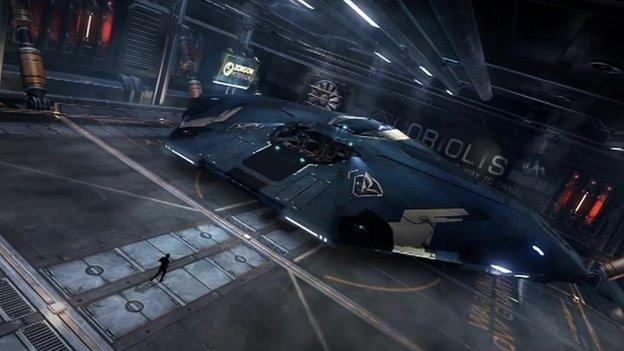
- Published12 June 2014
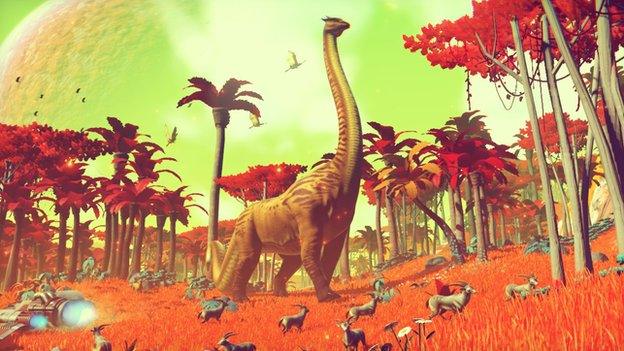
- Published14 March 2014
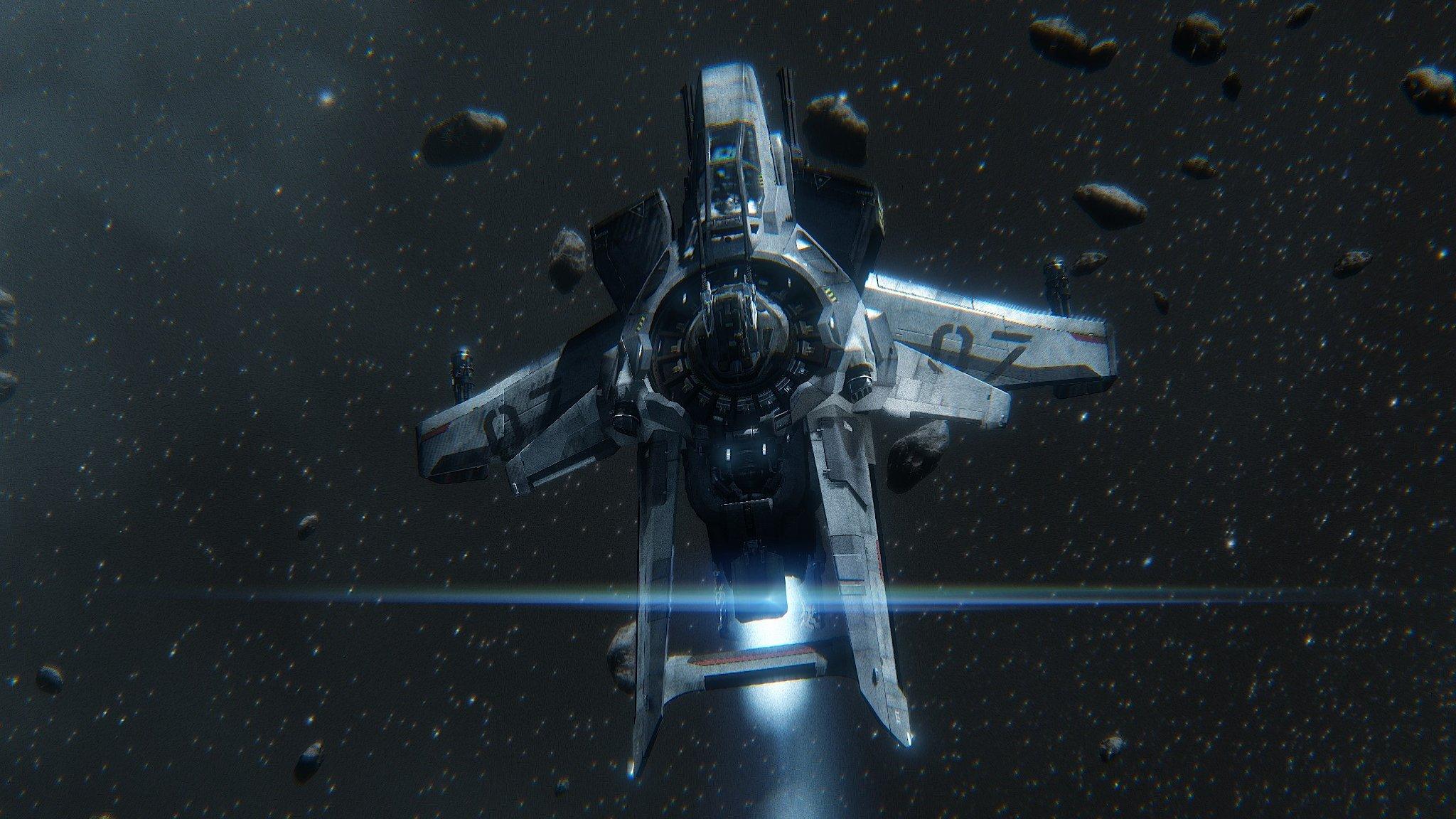
- Published6 November 2012
